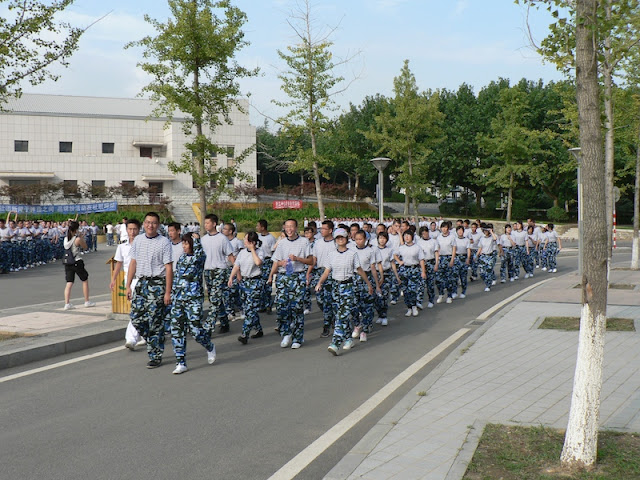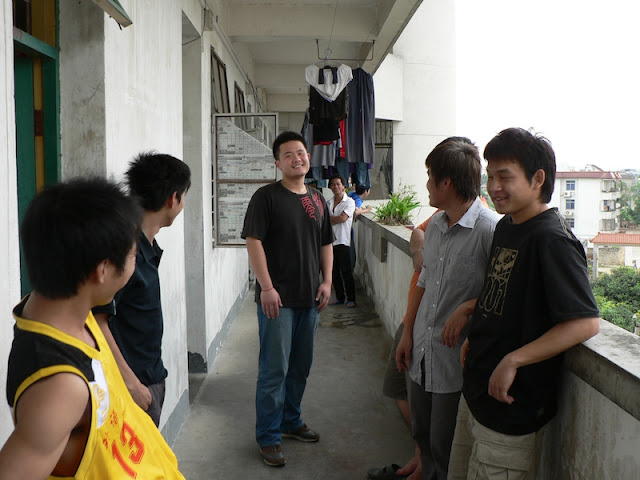Before sharing the examples of college dormitories in China (introduction here; my relevant research experience here), an informal post on some of the "methods" I used may prove useful in interpreting what will soon follow. Although the methods varied, there are some commonalities worth mentioning:
1. None of these visits were arranged in any way by the universities. I visited all of the dorms at the invitation of students.
2. The students and the dorms were not selected by the universities in any way.
3. The choice of the specific dorms was not planned in advance. When the students woke up that morning, they had no idea I would be visiting their dorm room. The photos are all of "natural" conditions, and the students had no opportunity to prepare for my visit.
4. I made no effort to view any specific type of dorm.
Finally, I want to thank the many students who guided me around their schools, allowed me into their dorms, and opened up to me about a variety of topics. It reminds of the many other people in China who were friendly to me.
Now that those formalities are out of the way, on to the main posts...
UPDATE: See here for the first post of views inside a dorm room, this one at Dalian Maritime University.
1. None of these visits were arranged in any way by the universities. I visited all of the dorms at the invitation of students.
2. The students and the dorms were not selected by the universities in any way.
3. The choice of the specific dorms was not planned in advance. When the students woke up that morning, they had no idea I would be visiting their dorm room. The photos are all of "natural" conditions, and the students had no opportunity to prepare for my visit.
4. I made no effort to view any specific type of dorm.
Finally, I want to thank the many students who guided me around their schools, allowed me into their dorms, and opened up to me about a variety of topics. It reminds of the many other people in China who were friendly to me.
Now that those formalities are out of the way, on to the main posts...
 |
| College freshman in Dalian, Liaoning province, participating in their mandatory military training |
UPDATE: See here for the first post of views inside a dorm room, this one at Dalian Maritime University.



